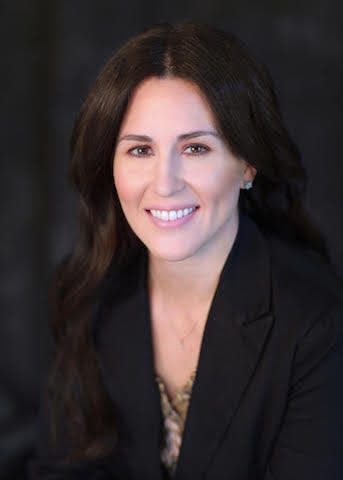A progressive political group is launching a campaign to unseat two Arizona Supreme Court justices who recently upheld a near-total abortion ban from 1864.
Justices Clint Bolick and Kathryn H. King, who are up for judicial retention votes this fall, were part of a recent 4-2 majority opinion that upheld a 160-year-old law that bans abortions except those necessary to save a woman’s life, and punishes doctors who provide them.The pre-statehood law mandates two to five years in prison for anyone aiding an abortion, except if the procedure is necessary to save the life of the mother. The ruling sent shock waves through the Arizona political landscape, prompting outrage among supporters of abortion rights.
Progress Arizona, a 501(C)(4) nonprofit group, is attempting to channel that energy. The group announced Monday it would be raising money and conducting an education campaign aimed at removing Bolick and King from the bench.
"In extraordinary circ*mstances like the ones we are in today, removing judges who serve ideology over the people is not just a constitutional right, it is a civic duty," said Progress Arizona's Abigail Jackson. "It’s up to voters to preserve the integrity and balance of the judicial system.”
A spokesperson for the Arizona State Supreme Court did not immediately respond to a request for comment.
Progress Arizona is launching a website where Jackson said voters will be able to learn about the recent ruling, and how they can exercise their power as voters in response. They will also ask voters to pledge to vote "no" on retention for Bolick and King.
“When judges overstep, Arizona’s constitution empowers voters to step in," she said.
State Supreme Court justices, along with judges on the Court of Appeals and most county superior courts, face voters after serving their first two years in office. Voters have the opportunity to select whether or not a justice or judge should remain on the bench. If they are retained, and the vast majority are, higher court judges will be back up on the ballot every six years and trial court judges every four years.
Jackson said they will also be fundraising money that will be put into targeted digital ads.
"I think this is an issue that Arizona across the board are outraged about," she said, "and they are looking for ways to get involved in do something about it."
Voters took the unprecedented step of removing three Maricopa County Superior Court Justices in 2022. While Arizonans have never removed a Supreme Court justice, they came closer than ever before in the same cycle, when Justice Bill Montgomery was only retained with just 55.5% of the vote.
501(C)(4) groups are allowed to raise and spend money against specific candidates. While such groups commonly focus on legislative and congressional races, more dollars have been flowing into judicial retention elections in recent years.
A political action committee called Arizonans for a Just Democracy paid for mailers encouraging voters to remove all three Supreme Court justices up for retention in Arizona in 2022.
Jackson thinks Progress Arizona will be able to build off of that work in the 2024 cycle.
"We're definitely seeing the impact that the judiciary is having on many of the issues that we are fighting for," Jackson said, "And with the abortion ruling, I think that we have seen that there's really an appetite to hold the people that are responsible for issuing that ruling accountable."
All of Arizona's Supreme Court justices were appointed by Republican governors. Both Bolick and King were appointed by former Republican Gov. Doug Ducey, who controversially expanded the court in 2016 from five justices to seven.
If more than 50% of voters choose not to retain them, Bolick and King would be replaced by Democratic Gov. Katie Hobbs.
However, a resolution making its way through the state Legislature could keep Arizona’s Supreme Court justices on the bench, even if voters decide to reject them on the ballot in November.
A Senate resolution would do away with Arizona’s judicial retention elections, allowing superior, appellate and Supreme Court judges to essentially have lifelong terms. The resolution, if passed by the House, would appear on the ballot and be decided by voters on Election Day. The resolution would apply retroactively, meaning any results from November’s judicial retention elections would be thrown out.
Jackson said the campaign would work to educate the public about how judicial retention elections are an important check on the power of the judicial branch and should be kept in place, especially in light of an abortion ruling that she says goes against the will of the people.
"It's up to us to ensure that the judiciary is serving its true purpose, which is upholding justice, not personal and political agendas, which I think this ruling does," she said.
Republic reporters Reagan Priest and Miguel Torres contributed to this article.
Have a news tip? Reach the reporter at jjenkins@arizonarepublic.com or 812-243-5582. Follow him on X, formerly known as Twitter, @JimmyJenkins.
This article originally appeared on Arizona Republic: Arizona abortion ban: Campaign wants to unseat pro-1864 law justices
